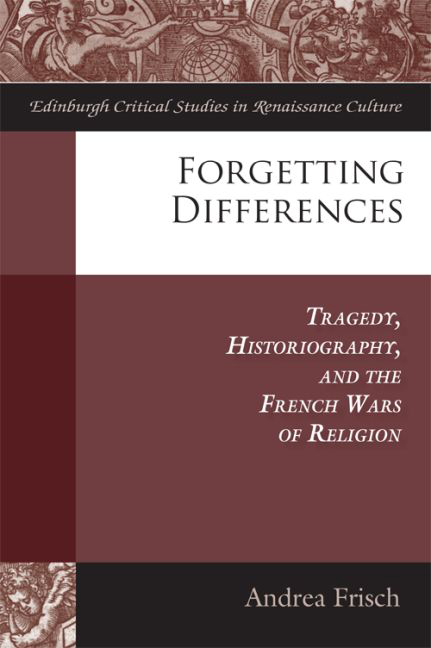2 - Clemency, Pardon, and Oubliance
Published online by Cambridge University Press: 12 September 2017
Summary
In his exhaustive study of an “event without a history,” as he calls it, Denis Crouzet sets the St. Bartholomew's Day massacre in the context of French Renaissance dreams of community. According to Crouzet, at the time of the massacre, the French king, Charles IX, was at the center of several competing visions of French concord. The most dramatic of these visions imagined the king as the agent of divine justice in its Old Testament form: a series of writers advocated the use of violence to rid France of heresy and thus reunite the French. Others, most notably the chancelier Michel de l'Hôpital, advocated tolerance. Crouzet shows how l'Hôpital's dreams of reconciliation resonated with a broader neoplatonic and neopythagorist vision of the king (and queen) as the agents not of divine retribution, but of universal harmony.
Though I hesitate to reduce Crouzet's lengthy presentation any more than I already have, I nonetheless think we can usefully schematize the sixteenth-century responses to the Huguenot question he presents in terms of the old dichotomy of violence vs persuasion. Taken to its logical conclusion, the violent response to heresy would have involved the putting to death of every last heretic. However, the telos of the persuasive approach to religious discord – the dissolution of meaningful religious differences that Catherine de Medicis sought – is not all that different, since it does not grant Protestants the possibility to continue to exist as Protestants. (Theodore de Bèze recognized this immediately at the Colloque de Poissy in 1561.) Thus, both responses to the Huguenot question ultimately aim toward the elimination of the Huguenot community as such.
Rather than adopting Crouzet's alternatives of violence or persuasion, I shall here examine another privileged discourse of reconciliation in sixteenth-century France that sets a rhetoric of vengeance or pardon, on the one hand, against a rhetoric of oubliance, on the other.
- Type
- Chapter
- Information
- Forgetting DifferencesTragedy, Historiography, and the French Wars of Religion, pp. 26 - 62Publisher: Edinburgh University PressPrint publication year: 2015



